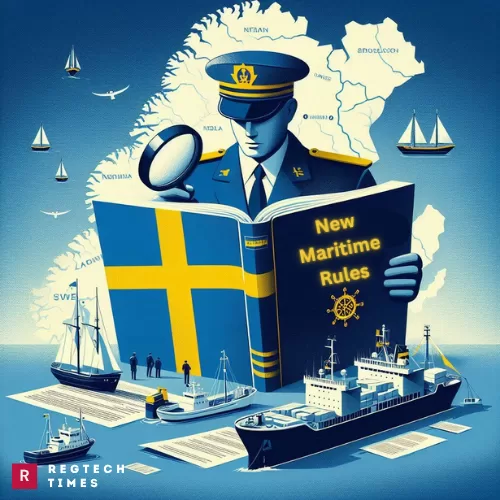Sweden has announced strict new rules to monitor foreign ships travelling through the Baltic Sea, starting July 1. The new measures come as part of a crackdown on what is widely known as Russia’s “shadow fleet”—a group of vessels that operate under unclear ownership and suspicious insurance records. These ships are believed to be helping Russia bypass international sanctions placed after its full-scale invasion of Ukraine in 2022.
Prime Minister Ulf Kristersson stated that Sweden is seeing more and more troubling incidents at sea and must be prepared. His announcement highlighted the increasing risks posed by this unregulated fleet of tankers, which often transport oil in violation of global restrictions.
According to the Swedish government’s official statement, the new rules will require all foreign ships not only to declare proper insurance but also to be checked even if they’re simply passing through Swedish waters. This includes vessels travelling within Sweden’s Exclusive Economic Zone (EEZ), which stretches up to 200 nautical miles from its coast.
Nordic Outrage Explodes: Sweden Leads EU Backlash Against Zionist Regime’s Aid Ban
The Swedish Coast Guard and the Swedish Maritime Administration will be responsible for enforcing the new regulations. They will carefully inspect ships docking at Swedish ports as well as those moving through Swedish-controlled sea areas.
Concerns Over Safety and Environmental Risks
The push for tighter controls is rooted in growing concerns over maritime safety and environmental protection. Authorities in Sweden and neighboring countries have blamed Russia’s shadow fleet for a series of suspicious events in the Baltic Sea, including damage to undersea communication cables and energy pipelines. While it’s not always clear whether these incidents are accidental or intentional, officials are treating them as serious threats.
These ships are often old and poorly maintained, raising fears of oil spills and mechanical failures. Many do not follow international safety standards. Without proper insurance or clear ownership, holding them accountable becomes almost impossible if something goes wrong.
In late 2024, several unexplained incidents took place under the sea, affecting vital energy and data infrastructure. These events intensified calls for tougher regulations. Sweden, along with Finland—its fellow new NATO member—has since increased focus on safeguarding the Baltic region.
Undersea Espionage? Sanctioned Russian Ship Caught Lurking Near Vital Poland-Sweden Power Cable
Prime Minister Kristersson emphasised that these actions are not just about Sweden alone. “We are seeing a growing number of concerning incidents in the Baltic Sea, which requires us to prepare for the worst,” he said during the announcement.
Coordination With NATO and EU Allies
The new rules also serve a larger purpose: improving international cooperation. Sweden confirmed that any data collected through these ship inspections will be shared with its allies, including other NATO countries and the European Union. This will help in building a broader system to track and possibly block ships that may be part of Russia’s shadow fleet.
Just a week before Sweden’s announcement, the European Union introduced its 17th sanctions package against Russia. That new set of measures targeted nearly 200 vessels believed to be involved in the shadow fleet operations. With Sweden’s new enforcement plan, these international sanctions may be easier to uphold.
The Baltic Sea is now under tighter watch than ever before. By requiring foreign vessels to show legitimate insurance and flagging suspicious behaviour, Sweden is taking a strong stand in defence of maritime safety and its national interests.
